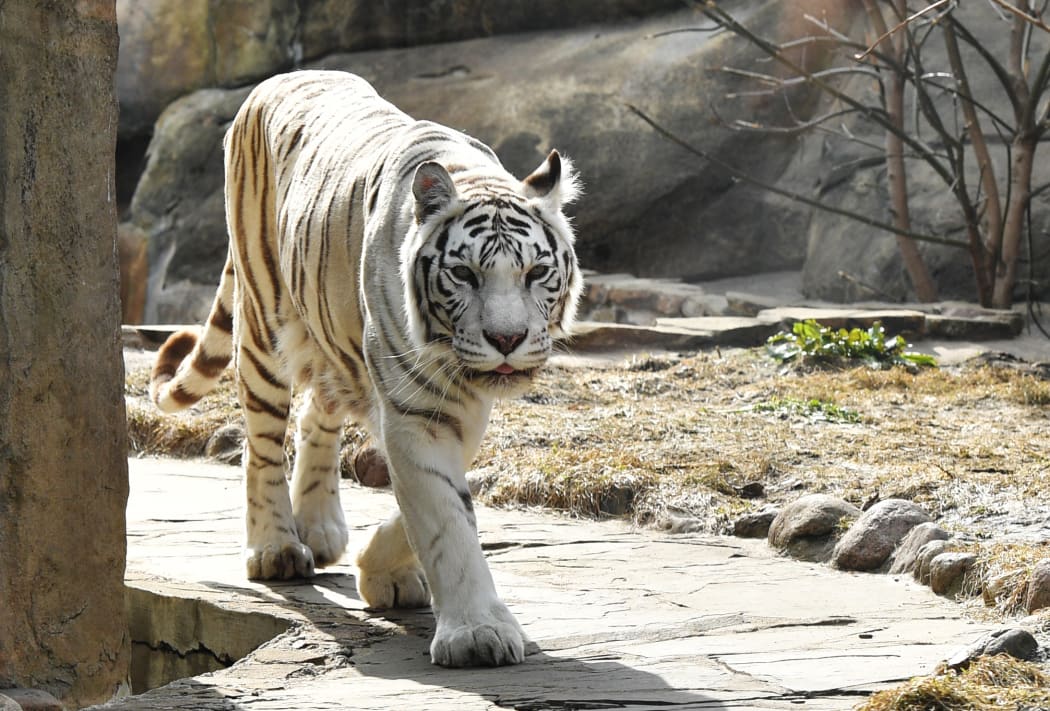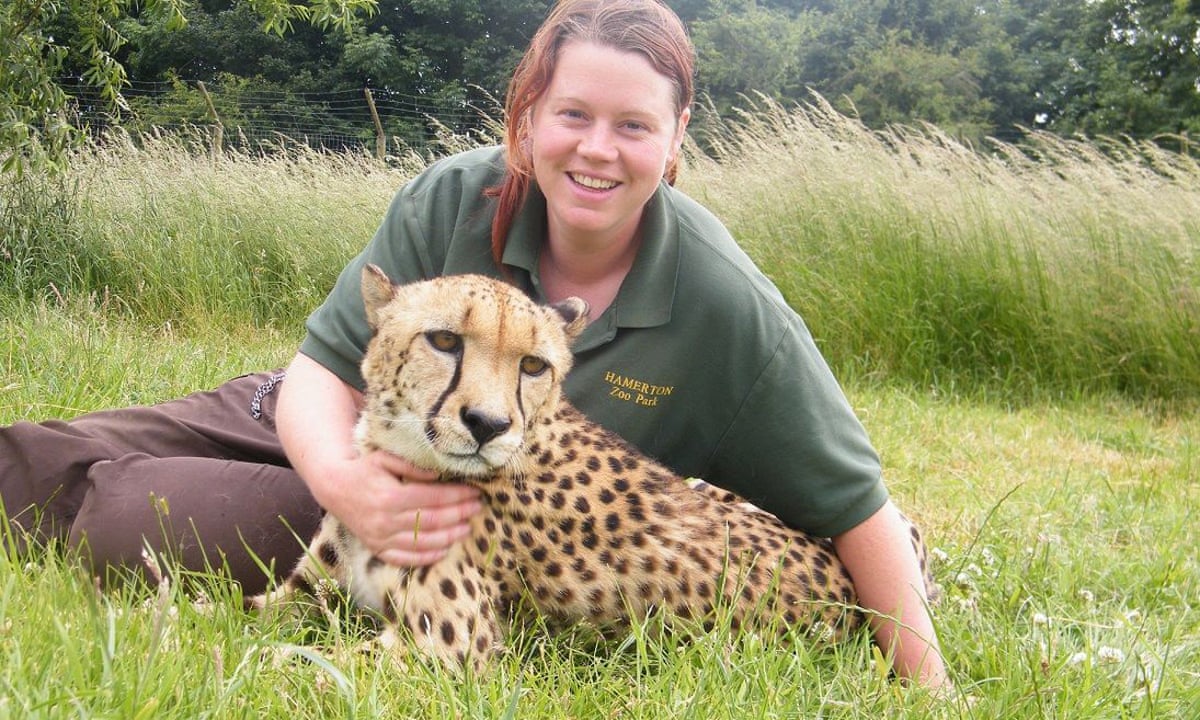How To Become A Zoo Keeper?
페이지 정보

본문
"The greatness of a country and its moral progress can be judged by the way its animals are treated." - Mahatma Gandhi
Do you love animals and dream of working in a zoo? Zoo keepers are key in securing wildlife and caring for animals. At places like the Zoological Society of London (ZSL), over 20,000 animals get the care they require from specialists.

To become a zoo keeper, you need hard work, education, and a love for animals. This job is exciting, letting you deal with numerous species and help with crucial preservation work. If you're into wildlife or animal welfare, zookeeping might be best for you.
Starting your zoo keeper career implies discovering what's required. This guide will cover education, experience, and more. It's all you need to know to start a satisfying zookeeping career.
Understanding the Role of a Zookeeper
Exploring what a zookeeper does exposes a role loaded with difficulties and benefits. They focus on animal welfare and preservation. Zookeepers strive to keep animals healthy and delighted in their care.
Daily Responsibilities and Tasks
A zookeeper's day is filled with important jobs:
- Preparing meals that fulfill each animal's nutritional requirements
- Cleaning enclosures to keep them tidy and safe
- Monitoring animal health and behaviour
- Providing medications and treatments as required
- Developing activities to keep animals psychologically sharp
Workplace and Conditions
Zookeepers work outside in all type of weather. They handle both indoor and outdoor areas. The job requires being fit and able to deal with the demands of looking after animals.
"Being a zookeeper is more than a job - it's an enthusiastic dedication to animal care and preservation."
Types of Animals and Specialisations
Zookeepers can specialise in many animal groups:
- Primates
- Big cats
- Marine mammals
- Reptiles
- Birds
Your role might include dealing with 2-5 various animal species. This needs a great deal of understanding and the ability to adapt.
Vital Skills and Personal Qualities for Zoo Keeping
To be a top zookeeper, you need more than simply a love for animals. Your job will be tough and need you to manage animals and individuals well. You'll also require to understand animal behaviour.
What zoos search for in individuals includes:
- Exceptional perseverance and emotional durability
- Strong fitness and stamina
- Eager observation abilities
- Ability to remain calm under pressure
- High level of compassion towards animals
Getting hands-on experience is essential to mastering this function. You'll need to reveal:
- Advanced understanding of animal care strategies
- Efficiency in animal handling and security procedures
- Reliable interaction with both animals and human visitors
"An excellent zookeeper connects science, compassion, and preservation in every interaction with animals."
You need to understand about animal nutrition, behaviour, and standard veterinarian care. The majority of zookeepers learn through training, offering, and continuous learning.
Zookeeper work is not simply a job. It's a big dedication to teaching about wildlife and helping conservation. Your enthusiasm and effort will make you stand apart in this fulfilling profession.
How to Become a Zoo Keeper
Starting a career as a zookeeper requires cautious preparation and education. You should initially comprehend the educational needs and training courses. These will turn your love for animals into a task.
Educational Requirements
To be a terrific zookeeper, you need a strong academic base. The majority of jobs search for particular qualifications:
- At least 5 GCSEs at grade 4 or above, including English, mathematics, and science
- A levels or higher education credentials
- A college degree in biology or animal science
- Level 3 Diploma in Animal Management
Essential Certifications
Getting unique accreditations can truly help you in your zookeeper career. Important ones consist of:
- Diploma in Management of Zoo and Aquarium Animals (DMZAA)
- Zookeeping Level 3 Diploma (RQF)
- Animal dealing with certificates
- Emergency treatment certifications
Training Programs and Apprenticeships
Getting hands-on experience is key in zookeeper training. Numerous places offer excellent opportunities:
- Unpaid apprenticeships at wildlife parks
- Internship programmes at popular zoos
- Practical training at places like Colchester Zoo and Dartmoor Zoo
- Volunteering to gain real-world skills
Pro idea: Create an in-depth portfolio to reveal your animal care skills. It will assist you in task applications.
Building Relevant Experience in Animal Care
Getting hands-on experience is key for those wishing to be zookeepers. The job is very competitive. So, it's important to begin developing a strong base in animal care.
Your journey starts with finding ways to work directly with animals. This is a strategic action.
"Experience is the best teacher in animal care" - Wildlife Conservation Experts
Here work ways to acquire experience working with animals:
- Volunteer at local animal shelters to establish basic animal handling skills
- Look for internships at wildlife rehabilitation centres
- Explore part-time positions at veterinary centers
- Contact your local zoo for possible volunteer chances
Offering is a great way to find out about animal behaviour and care. Many zoos and animal shelters are looking for people who wish to discover. These locations use fantastic opportunities to get hands-on experience and show your commitment to animal welfare.
Here are some pointers to make the most of your experience:
- Keep a record of your abilities and interactions
- Get in touch with experts in animal care
- Request recommendations and recommendation letters
- Stay persistent and reveal your real enthusiasm
Remember, zookeeper practical experience makes you stand apart in the zookeeping world. Every time you work with animals, you discover more. This increases your opportunities of getting a job in animal care.
Career Pathways and Professional Development
Beginning a profession as a zookeeper is amazing. It provides many chances to grow and specialise. Your journey starts with understanding the various paths in this field.
Entry-Level Positions
Entry-level tasks in zookeeping are a terrific start. They offer you hands-on experience. Zoos search for candidates with:
- Level 2 Diploma in Animal Care (minimum qualification)
- GCSEs in English and a clinical subject
- Volunteer experience at animal shelters or farms
Career Progression Opportunities
As you gain experience, your profession can grow. You can go up to:
- Junior zookeeper Keeper
- Senior Keeper
- Group Leader
- Professional Roles
"Continuous learning and useful experience are crucial to advancing in your zookeeping career."
Specialised Roles
You can also pick special locations like:
- Conservation breeding programs
- Animal training
- Wildlife research
- Educational outreach
About 25% of zookeepers get advanced degrees in zoology or animal preservation. Getting Level 4 credentials can boost your chances for senior roles and research.
Working Hours and Physical Demands
Becoming a zookeeper indicates you'll work more than just regular hours. You'll deal with difficult physical obstacles and need to be flexible, including weekends and holidays. Zoos are open every day, so you'll typically work when others unwind.
"Zoo keeping is not a normal 9-to-5 task-- it's a way of life of dedicated animal care and commitment."
This task is physically demanding. You'll work outside in any weather, raising heavy items over 50 pounds. Your jobs might include:
- Early early morning feeding schedules
- Cleaning animal enclosures
- Preparing specialised diets
- Carrying out health checks
- habitats
Shifts can begin as early as 5 AM and go late into the night. You'll be on your feet most of the time, moving between animal zones. Weekends and holidays become part of the job, requiring lots of endurance and commitment.
Regardless of the difficulties, this job has excellent rewards. You'll grow strong, both physically and emotionally. You'll likewise make incredible connections with incredible animals.
Health And Wellness Considerations
Being a zookeeper features its own set of difficulties. It's essential to understand how to keep both animals and staff safe. This implies following stringent health and safety guidelines.
Zookeepers face an unique environment where safety is key. Research studies reveal that health and safety are now as crucial as the zoo's primary work.
Threat Management Strategies
There are several methods to manage risks in zoos:
- Daily checks of animal enclosures for dangers
- Counting animals at the start and end of shifts
- Watching how visitors act near animals
- Being ready for emergency situations
Animal Handling Safety Protocols
Knowing which animals are most hazardous is vital. Huge animals like rhinos can be really dangerous. There have actually been cases where zookeepers got seriously hurt.
Security isn't almost wearing equipment - it's about knowing animal behaviour and staying alert.
Individual Protective Equipment
Zookeepers require to use the ideal equipment, including:
- Special gloves for managing animals
- Strong shoes for grip and safety
- Clothing that protects against bacteria
Getting vaccinated against diseases like liver disease B and rabies is likewise key. It helps keep zookeepers healthy in their tough job.
Wage Expectations and Job Market
Considering a career in zoo keeping? It's essential to know about wages and the task market. The field is growing, with more chances in the UK.
Let's look at what zoo keepers can earn at different stages:
- Entry-level zookeepers begin at about ₤ 14,000 a year
- Certified ones make in between ₤ 16,000 and ₤ 22,000
- Senior zookeepers can make up to ₤ 30,000 or more
The job outlook for zoo keepers is great. The sector is expected to grow by 5% in the UK by 2029. This means around 3,910 brand-new jobs will be offered.
"The Association of Zoos and Aquariums supports expert growth for zoo keepers," a report says.
Salaries vary based upon numerous things:
- Experience level
- Specialisation
- Where you work
- The zoo's size and type
While the pay may not be high, the joy of dealing with animals is priceless. The average salary is around ₤ 17,000. But, overall profits can be in between ₤ 13,000 and ₤ 27,000 a year.
Conclusion
Starting a career in animal care is an interesting journey. It needs dedication, enthusiasm, and a love for learning. With over 350 zoos and wildlife locations in the UK, zookeeper there are lots of job chances. You'll get to work with incredible animals and assist safeguard wildlife.
To be a zoo keeper, you need more than just love for animals. You must have a mutual understanding of biology, be able to communicate well, and constantly want to learn more. You'll gain hands-on experience, find out about animal welfare, and develop a deep regard for nature. About 3,000 people in the UK have actually found satisfying careers in this field.

Your success in zoo keeping originates from blending science with a love for animals. Whether you're interested in mammals, birds, or marine life, this job lets you help with conservation. Every day will bring new obstacles and discovering opportunities that will improve your skills and knowledge.
If you love animals and want to help protect wildlife, zoo keeping might be for you. Handle the difficulty, remain curious, and turn your enthusiasm for animals into a fulfilling career.

- 이전글Don't Buy Into These "Trends" About Private Adhd Assessment London 25.02.06
- 다음글The Best Hobs Uk Tricks To Transform Your Life 25.02.06
댓글목록
등록된 댓글이 없습니다.


